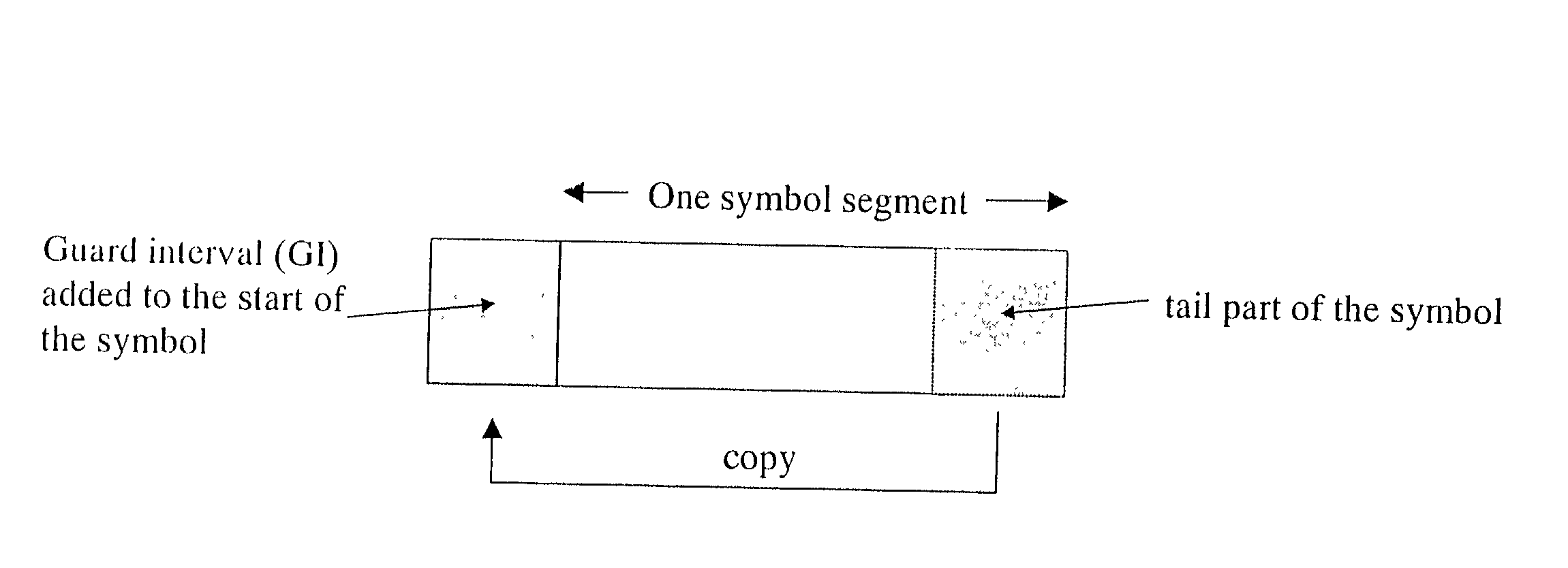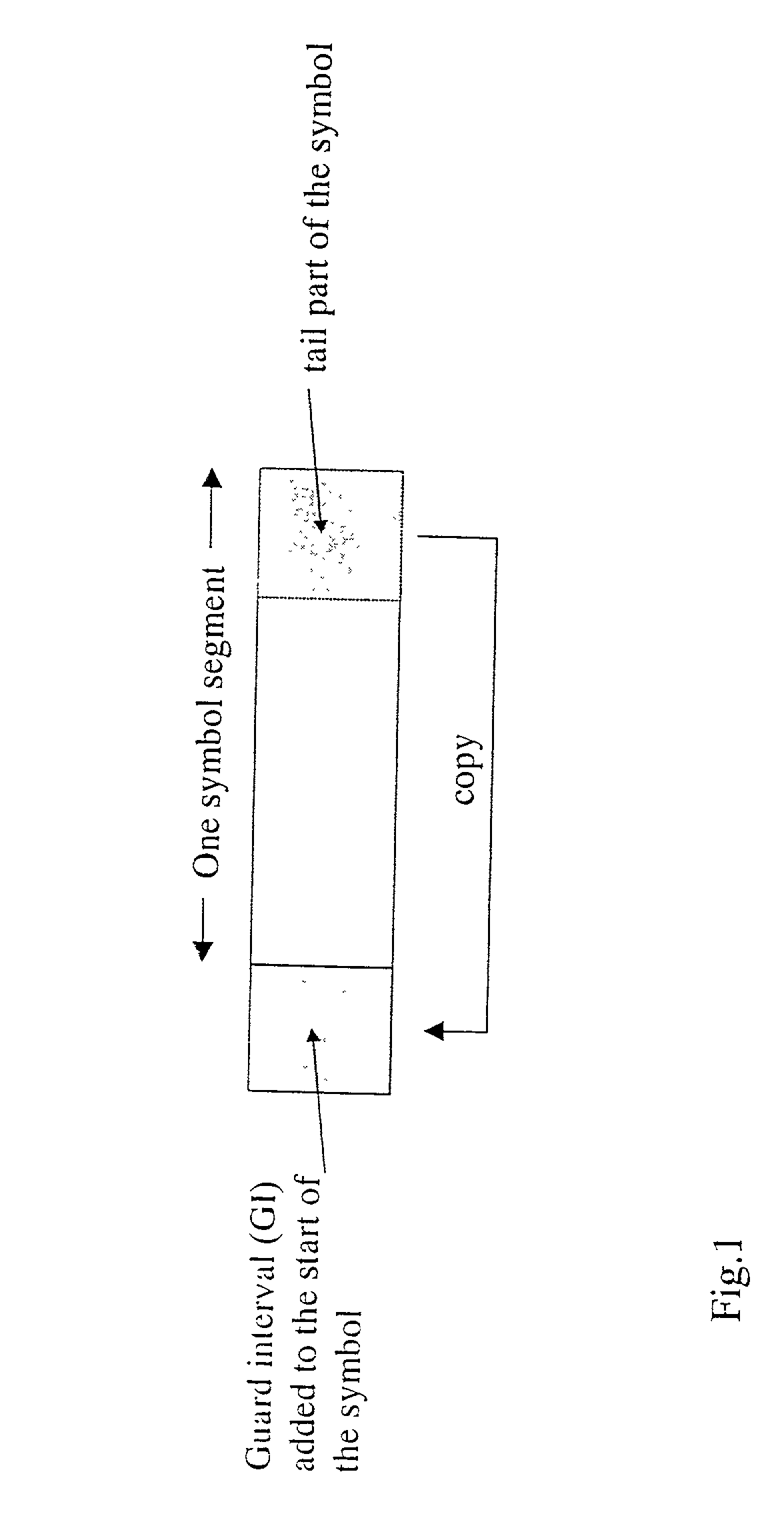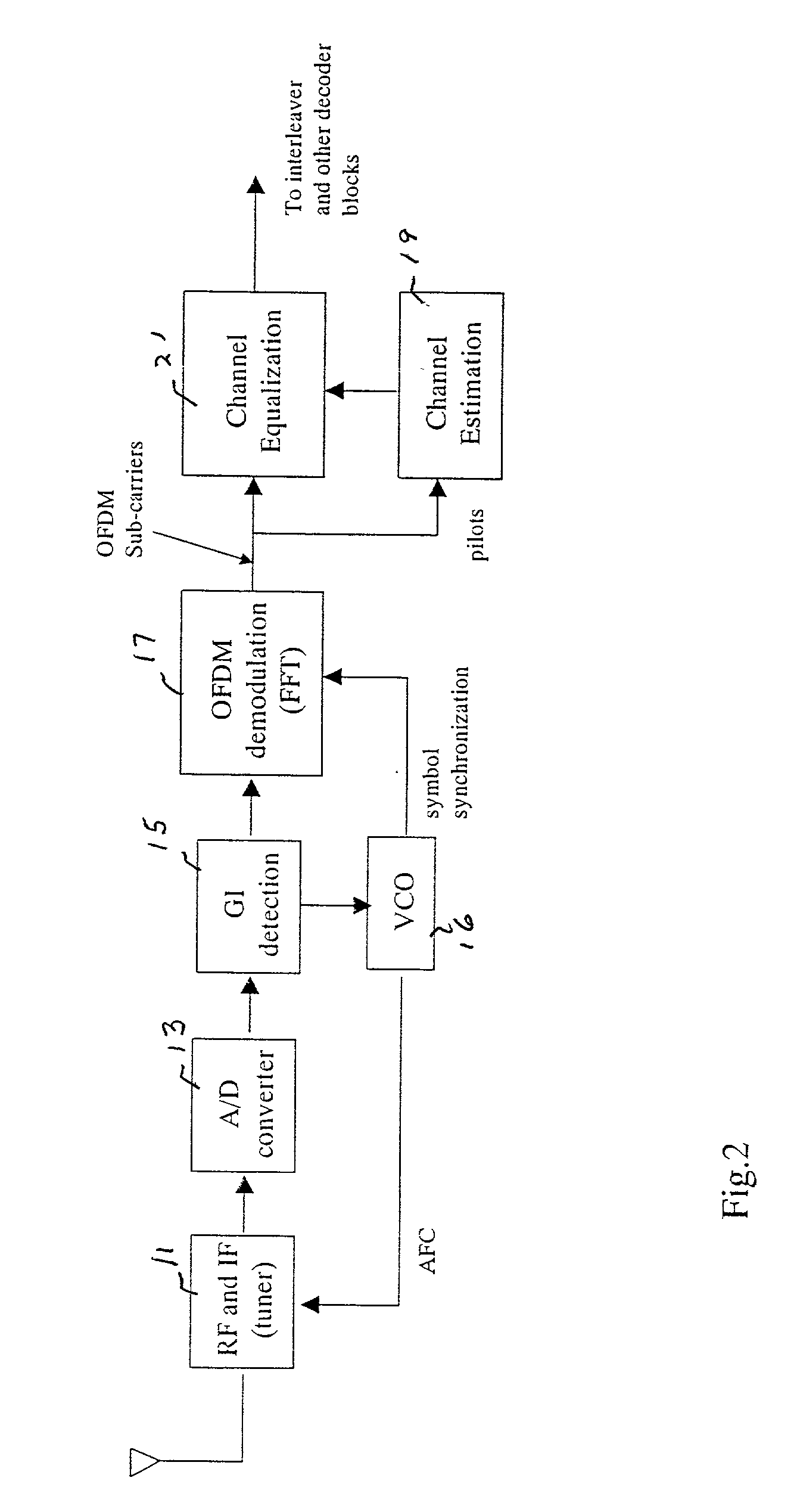Multi-path equalization for orthogonal frequency division multiplexing communication system
a communication system and orthogonal frequency division technology, applied in the field of multi-path equalization of orthogonal frequency division multiplexing communication system, can solve the problems of fading and attenuation, unacceptably large number of errors in the decoding process, and difficulty in good channel estimation
- Summary
- Abstract
- Description
- Claims
- Application Information
AI Technical Summary
Benefits of technology
Problems solved by technology
Method used
Image
Examples
Embodiment Construction
[0029] The structure of a conventional OFDM receiver for DVB-SI and ISDB-T is similar, and the inclusion of the pilot signals within the whole symbol is common with the ODFM receiver in general.
[0030] In ODFM, data bits are mapped on a group of sub-carriers in the frequency domain. Let the modulated data (4 / 16 / 64 QAM, DQPSK, etc.) be represented as
c(k)=c.sub.1(k)+jc.sub.2(k) (1)
[0031] where c(k) corresponds to the data mapped in the signal space, the transmitted ODFM signal in the time domain is represented as (ISDB-T Mode 1) 1 T ( t ) = real ( k = 0 1403 ( c l ( k )+ jc2 ( k )) exp ( j2 ( k - 702 ) t / 2048 ) ( 2 )
[0032] The symbol length of this signal is 252 .mu.sec and to this, the protective guard interval (GI) is added by copying the tail part of the symbol as shown in FIG. 1. The length of GI is chosen to be 1 / 4, 1 / 8, {fraction (1 / 16)} or {fraction (1 / 32)} of the depending on the channel condition. The general structure of the OFDM receiver is shown in FIG. 2. The detection o...
PUM
 Login to View More
Login to View More Abstract
Description
Claims
Application Information
 Login to View More
Login to View More - R&D
- Intellectual Property
- Life Sciences
- Materials
- Tech Scout
- Unparalleled Data Quality
- Higher Quality Content
- 60% Fewer Hallucinations
Browse by: Latest US Patents, China's latest patents, Technical Efficacy Thesaurus, Application Domain, Technology Topic, Popular Technical Reports.
© 2025 PatSnap. All rights reserved.Legal|Privacy policy|Modern Slavery Act Transparency Statement|Sitemap|About US| Contact US: help@patsnap.com



